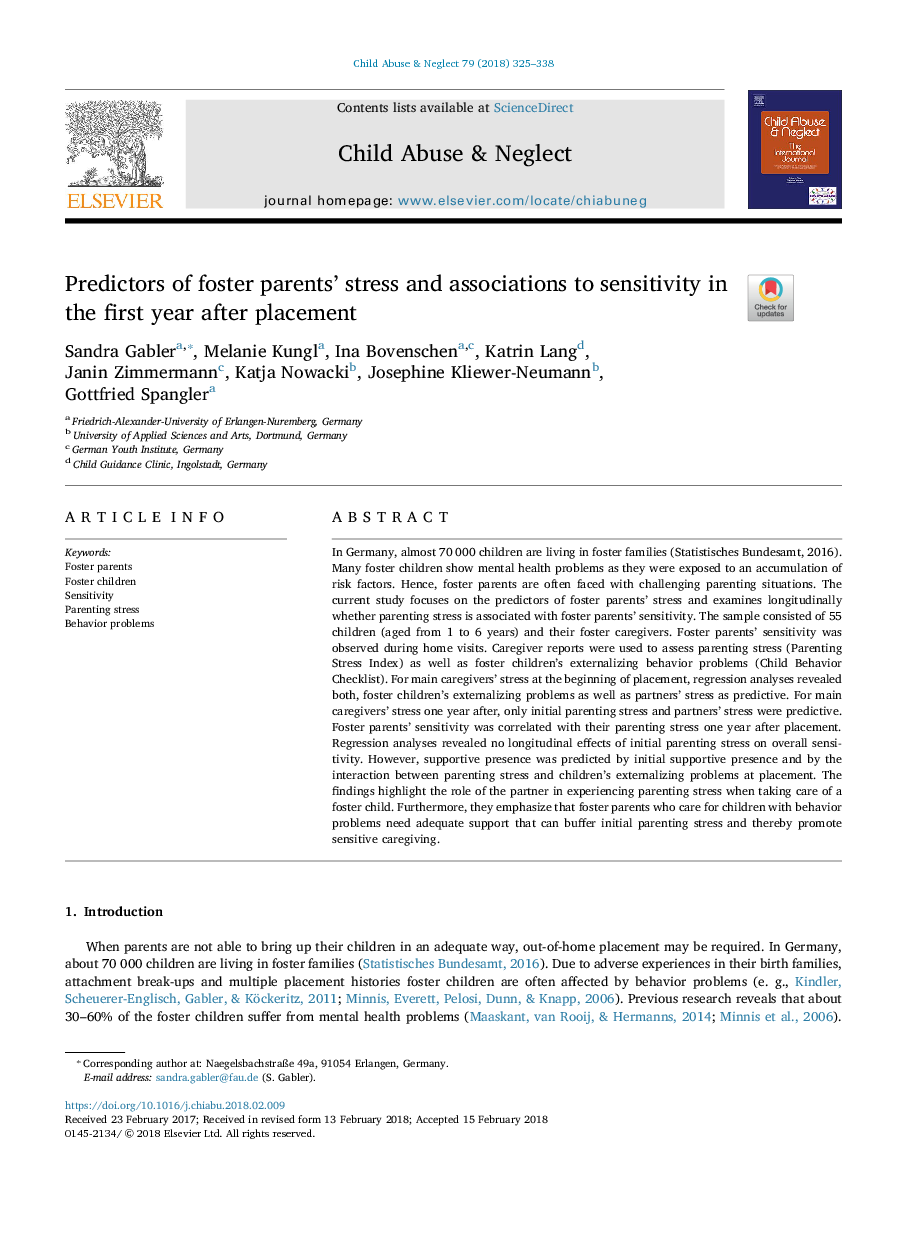ترجمه فارسی عنوان مقاله
پیش بینی کنندگان والدین پرستار در سال اول پس از قرار گرفتن در معرض استرس و ارتباطات به حساسیت
عنوان انگلیسی
Predictors of foster parents stress and associations to sensitivity in the first year after placement
| کد مقاله | سال انتشار | تعداد صفحات مقاله انگلیسی |
|---|---|---|
| 160403 | 2018 | 14 صفحه PDF |
منبع

Publisher : Elsevier - Science Direct (الزویر - ساینس دایرکت)
Journal : Child Abuse & Neglect, Volume 79, May 2018, Pages 325-338
ترجمه کلمات کلیدی
پدر و مادر فاستر، فرزندان فاستر، حساسیت، استرس والدین، مشکلات رفتاری،
کلمات کلیدی انگلیسی
Foster parents; Foster children; Sensitivity; Parenting stress; Behavior problems;

